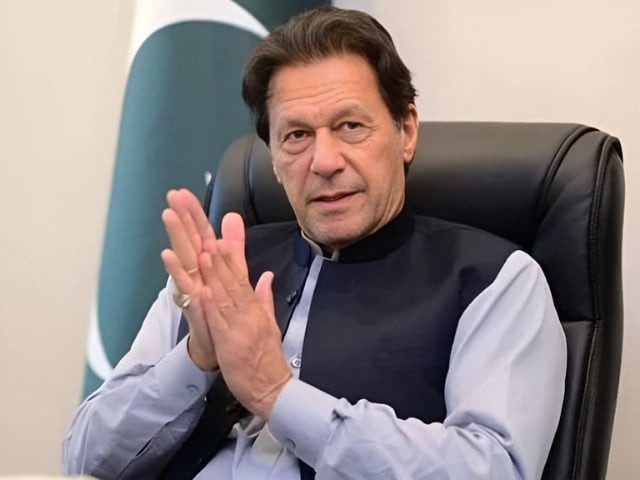Imran backs Gandapur's call for direct talks with Kabul
Says K-P has been bearing the brunt of terrorism for years

Former prime minister and PTI founder Imran Khan threw his weight behind Khyber Pakhtunkhwa Chief Minister Ali Amin Gandapur's proposal to engage in direct talks with Afghanistan to address terrorism in the volatile border areas.
The incarcerated leader that the K-P CM was absolutely right in planning to initiate the provincial negotiations with Kabul, a move the government has fiercely denounced as blatant bypassing of traditional diplomacy channels through the Centre.
Speaking to journalists at Adiala Jail on Friday, Imran said that authorities should be "begging" him to negotiate with Afghanistan, adding that the government should be grateful to him. "Terrorism cannot be eliminated without dialogue," the former premier stressed.
His comments came a day after Defence Minister Khawaja Asif lambasted Gandapur for suggesting that Khyber Pakhtunkhwa should bypass the federal government and engage directly with Kabul.
However, Imran argued that Khyber Pakhtunkhwa, being the hardest hit by terrorism, deserved a more direct role in negotiations.
"Forget the Foreign Office," he said. "Khyber Pakhtunkhwa has been bearing the brunt of terrorism for years, with countless policemen laying down their lives."
The PTI founder also took a swipe at Pakistan People's Party (PPP) chairman Bilawal Bhutto-Zardari, noting that he "never even visited Afghanistan" during his tenure as foreign minister.
Highlighting the sacrifices made by law enforcement, Imran claimed that officers across Pakistan were "rebelling" due to the worsening situation.
"We've been fighting this menace for 24 years, and if it's not controlled, our economy will come to a screeching halt," he warned.
The former prime minister stressed that improved relations with Afghanistan were vital to curbing terrorism, pointing out that "the least amount of terrorism happened during PTI's rule."
He urged the government to support anyone attempting to eradicate the threat, clarifying that Gandapur's intentions were "pro-state, not anti-state."
"Ali Amin spoke about negotiating but never set a specific timewhat harm is there in that?" Khan questioned, adding, "What wrong has Ali Amin said?"
He also alleged that the establishment was responsible for Gandapur's current disappearance, suggesting that Gandapur's loyalty and respect for the system kept him silent.
The PTI chief didn't hold back from broader criticism, claiming the establishment was undermining the country's institutions, likening the current situation to "Yahya Khan Part II."
He accused the powers that be of eroding public trust in institutions, citing an example where a judge allegedly took "three hours of instructions" before ruling against his wife, Bushra Bibi.
Imran also welcomed JUI-F chief Maulana Fazlur Rehman's opposition to tenure extensions for military and judicial officials, viewing it as a sign of hope in an otherwise bleak political landscape.
He criticised Nawaz Sharif, accusing him of weakening the judiciary through backdoor deals, while also taking aim at Chief Justice of Pakistan (CJP) Qazi Faez Isa over the extension issue.
On Pakistan's economic woes, Imran lamented the country's lack of foreign investment, contrasting it with countries like Singapore, which has attracted $140 billion in investment.
He argued that Pakistan's salvation lies in the rule of law and the engagement of overseas Pakistanis, which he claimed would free the country from dependence on the International Monetary Fund (IMF).
He also expressed frustration over the slow pace of the Toshakhana case, accusing the Supreme Court of dragging its feet while the Election Commission swiftly schedules cases against PTI, pointing to what he described as collusion between the Chief Election Commissioner and certain judges.



















COMMENTS
Comments are moderated and generally will be posted if they are on-topic and not abusive.
For more information, please see our Comments FAQ